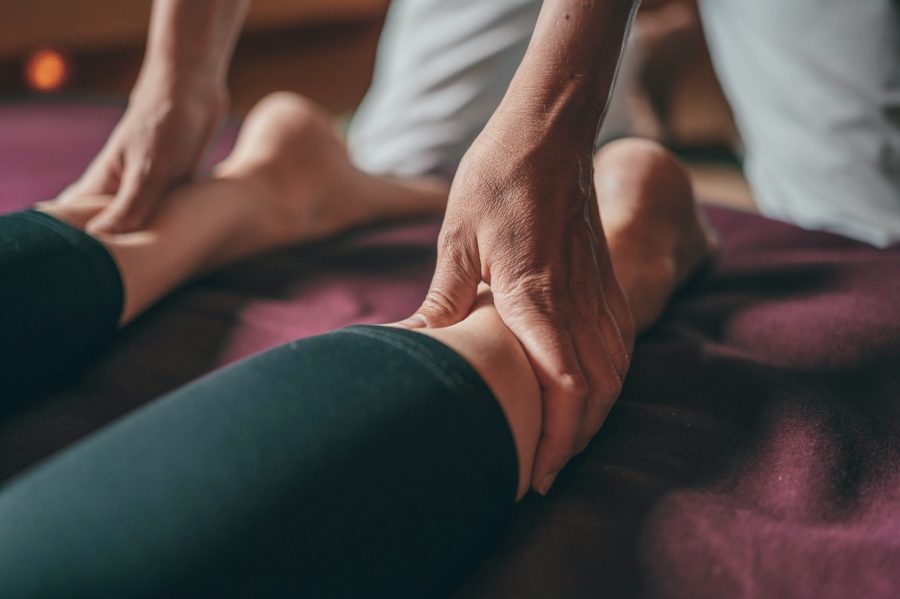Recovering from an injury of any kind can be painful and exhausting. How are you supposed to get back on your feet and resume your daily life? Receiving the right care from your doctors is crucial, but so is what you do (and don’t do) at home. The first thing you need to accept while healing is that it’s a process and will take time. After you understand that, here are five things that every person should know about successfully recovering from an injury.
Receive the Right Care
Getting better means that you have to get some help. At first, you are going to need to exercise caution while moving around. If your injury does not require you to visit an emergency room, give yourself time to assess the damage. It’s likely that even if you haven’t suffered any serious injuries that need urgent care, you will still need to undergo physical therapy after. A visit to the chiropractor as a precaution can be a good idea as well. Whiplash is common for many types of accidents, so you will want to make sure your neck and spine are properly aligned after. Even if you think you feel fine, you might want to see either a physical therapist or chiropractor. You might be surprised to find that you still suffered a minor injury.
If your pain and swelling aren’t going away, you might need to see your primary care physician. They can recommend treatment for you, including pursuing advanced injury care. It’s important to find someone who specializes in your type of injury. They will have the best solutions and understand how to treat the specific symptoms you are experiencing. Don’t overlook this important part of your healing and recovery.
While at home, you might need to use the RICE method: apply compression, use elevation, and just take it easy on your injured body part. Any elevated body part must be elevated above your heart in order for elevation to be effective. Always know that no matter how big or small your injury is, you will need to take the proper steps to get on the road to recovery.
Stick to Light Activity
When you are still attempting to self-diagnose, it is important that you lay off your usual heavy activities and only gently test it. It’s always better to take extra precautions rather than testing your limits. That means staying away from your regular workout regimen. More strenuous activity could further compound the injury and lead to even more pain. That can also make the healing process a lot longer. You might be anxious to get back to your active lifestyle or just doing your household chores, but healing will take time. If you are feeling up to moving around and being active, try some gentle stretches or a calm yoga class. You can even go on light walks to build up your strength again.
Once you have a proper diagnosis, you will have to follow their guidance on day-to-day activities. Don’t set your expectations too high. Anticipate them easing you back into it as your injury heals. Never try anything on your own and listen to professional health care providers before attempting to be active again.
Regain Your Strength
Injuries typically lead to a loss of strength in the impacted area of the body. Being out-of-commission for a few weeks or months can mean a loss of strength and stamina. Avoid throwing yourself back into your workout regimen. Instead, focus on slowly rebuilding your strength. There is still a good chance that you can reinjure yourself while your injury is healing. Even professional athletes are often advised to take it slow and steady. Even though you will need to avoid working out for a while, it’s best to start a routine after recovery. Using your muscles can help promote healing.
Take Care of Your Mental Health
Healing from an injury can feel like it takes forever. Because of this, it can start taking a toll on your mental health. If you feel like you are falling into a depression because of your injury, get help. There’s no shame in finding a therapist to talk to about your mental health. You don’t need to only focus on physical healing from your injury. Recognize that sometimes trauma comes along with experiencing an injury caused by an accident as well. Take the proper steps you need to process the trauma and prioritize your mental health.
Prevent Injuries In the Future
Future injury prevention is a topic that does not get discussed often enough. Learning how to respond to injuries in the future can make a huge difference in how you recover. If you play sports, make sure you are wearing the right gear. This is important for youth and adult athletes alike. And even if you don’t play sports, strengthening and conditioning through regular exercise can help prevent or lessen the severity of a future injury. There is always a learning opportunity that can come out of experiencing your injury.
Take it easy on yourself as you recover. There is no need to rush the process. Listen to your doctor’s guidance and know your body’s limits, and before you know it, you might find yourself feeling good as new. Remember each of the above tips in your healing process as well. Remember that there are always necessary steps to take in order to heal.



